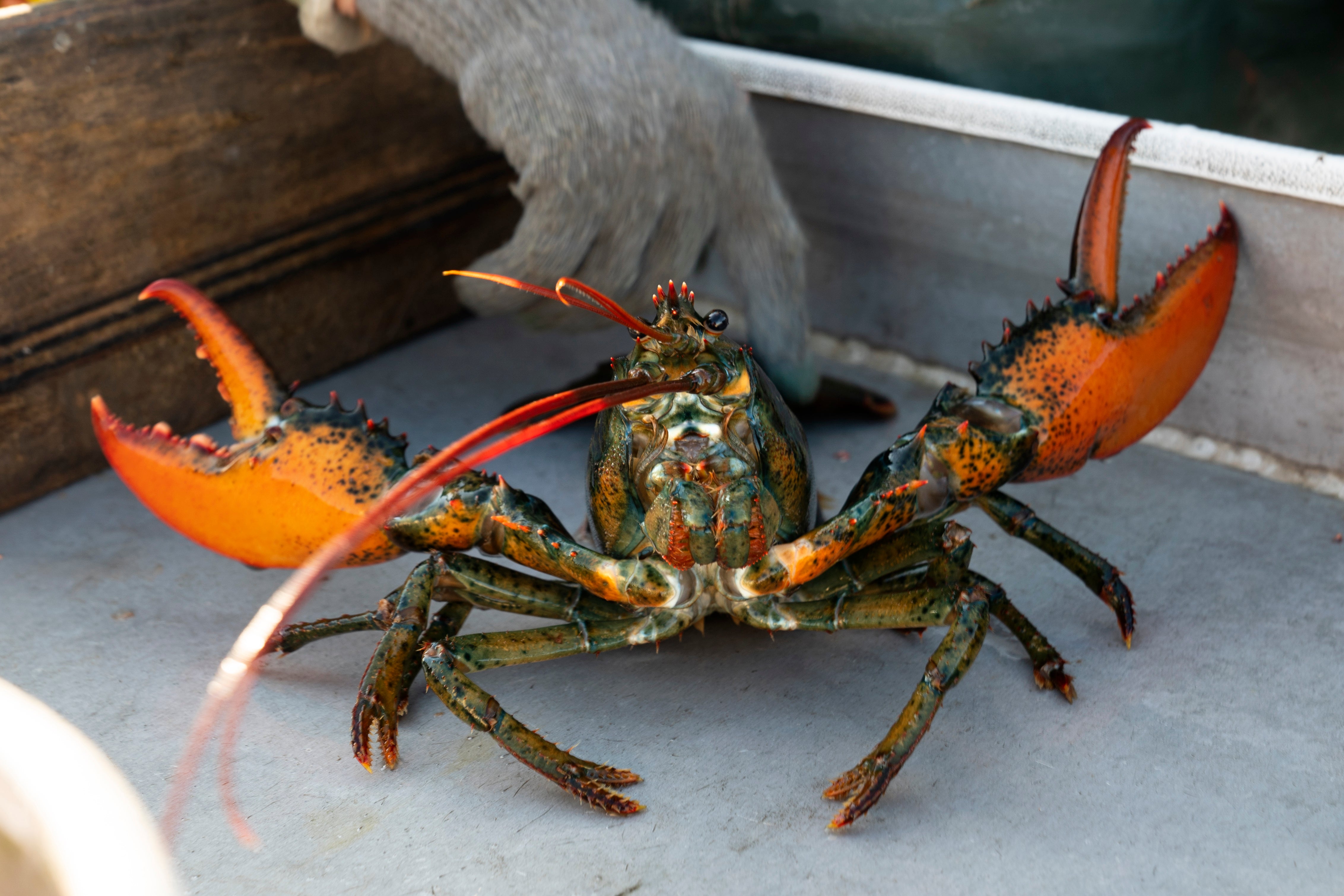Lobster rules to protect whale will wait 2 years, judge says
A federal judge has ruled that new lobster fishing restrictions designed to conserve rare whales will be delayed until 2024 to give the government time to design them

Your support helps us to tell the story
From reproductive rights to climate change to Big Tech, The Independent is on the ground when the story is developing. Whether it's investigating the financials of Elon Musk's pro-Trump PAC or producing our latest documentary, 'The A Word', which shines a light on the American women fighting for reproductive rights, we know how important it is to parse out the facts from the messaging.
At such a critical moment in US history, we need reporters on the ground. Your donation allows us to keep sending journalists to speak to both sides of the story.
The Independent is trusted by Americans across the entire political spectrum. And unlike many other quality news outlets, we choose not to lock Americans out of our reporting and analysis with paywalls. We believe quality journalism should be available to everyone, paid for by those who can afford it.
Your support makes all the difference.A federal judge has ruled that new lobster fishing restrictions designed to conserve rare whales will be delayed until 2024 to give the government time to design them.
The ruling Thursday by U.S. District Judge James Boasberg came on the heels of his July ruling that new, stronger rules are needed to protect the North Atlantic right whale from extinction. The whales are vulnerable to entanglement in fishing gear.
Boasberg previously ruled that fishing restrictions issued by the National Marine Fisheries Service didn't go far enough to protect the whales. The agency must issue new rules by December 2024, he ruled this week.
Environmentalists and fishing industry members have long argued about the rules. Fishermen argue that stricter rules could cripple the industry, which harvests one of the most popular and lucrative seafood items in the country. Conservation groups have cited entanglement in gear as an existential threat to the whales, which number 340 and are in decline.
The two sides came to rare accord over the decision to delay new rules to 2024. However, lobstermen said the industry still faces a grave threat from rules that prevent them from fishing.
“The bottom line is the court’s decision provides us some additional time to ensure that a final whale plan is based on the best available science and commercial data, but not enough time to help recover right whales without needlessly sacrificing the Maine lobster fishery,” said Patrice McCarron, executive director of the Maine Lobstermen's Association.
Conservation groups have pushed for the use of rope-free fishing gear to avoid entanglements, which are one of the two big threats to the whales, along with collisions with ships.
“A new and improved rule will keep right whales safer from deadly entanglements in fishing gear, so I’m glad the court realized the need to update the regulations,” said Kristen Monsell, oceans legal director at the Center for Biological Diversity. “But if we’re going to prevent the right whale’s extinction, we need to eliminate entanglements entirely, even non-fatal incidents, and the only way is to move to ropeless gear quickly.”
The right whales have been federally protected for decades but have been slow to recover from the commercial whaling era. The Marine Stewardship Council, which runs the largest seafood sustainability certification program in the world, said this week it will suspended its certification of Gulf of Maine lobster over concerns about harm to whales.